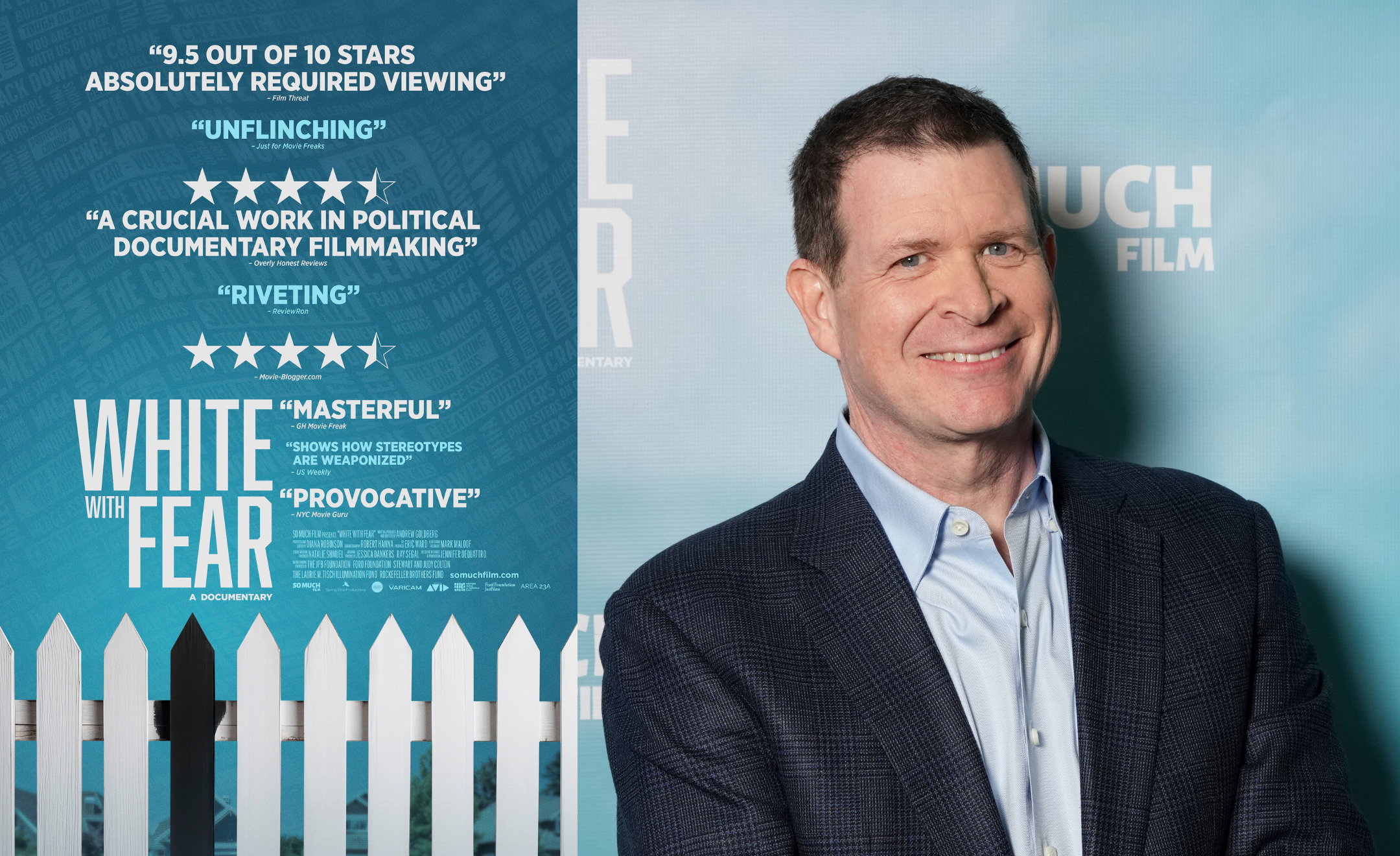Andrew Goldberg’s documentary, White with Fear, confronts a quiet but powerful force in American life: white anxiety, the fear that whiteness is losing its place in a changing country. At a time when the nation feels deeply divided and extremism is on the rise, the film explores how demographic shifts, political messaging and media narratives shape how many white Americans see their role in society.
Rather than preach or sugarcoat, the film leans into discomfort, letting everyday white Americans speak candidly about fears of being “replaced” or losing cultural dominance. Alongside those voices, Goldberg brings in historical context and expert commentary to show how larger systems and narratives feed into today’s white identity politics.
Watching White with Fear is a layered experience. It challenges, provokes and stays with you. The emotional weight comes in part from how openly Goldberg’s subjects speak. The film doesn’t excuse the harm that fear can cause, but it does try to understand where that fear is coming from.
The idea for the film took shape after the murder of George Floyd, when Goldberg noticed a shift in how white Americans were willing or unwilling to talk about race.
“There was a conversation in America about the relationship between white America and people of color, a conversation we hadn’t had before. Suddenly, many white Americans were willing to talk about race in a new way,” said Goldberg. “As we dug into it, we saw that many of these racial divisions in our country were not natural; they were created, manufactured and manipulated.”
That insight launched a production journey that spanned more than two years. Goldberg and his team worked on this project from 2021 to 2024, speaking with everyone from journalists and policy experts to far-right activists and even former presidential candidate Hillary Clinton. The result is a documentary filled with unexpected access and unfiltered perspectives.
“Tracking down sources and convincing them to talk to you is really the difference between what makes a journalist good and not,” said Goldberg. “You have to work your sources, work your leads and track people down.”
That persistence led to some of the film’s most powerful moments, giving viewers a glimpse into the thinking of those who believe their culture, jobs or communities are under threat.
The film’s visual storytelling strengthens its emotional impact. Archival footage from civil rights-era protests to Trump-era rallies is woven throughout the narrative. Goldberg’s team brought in full-time archivists to dig through obscure collections and old newsreels, a process that took nearly a year to piece together in the editing room.
“One of the great parts that makes a film like this come to life is the footage,” he said.
But White with Fear isn’t just about fear itself – it’s about how that fear is shaped. Goldberg shows that this anxiety didn’t emerge suddenly but has been molded over time through media, politics and history. By placing historical parallels alongside modern propaganda, the film reveals how white grievance has been repackaged across decades and presented in new forms to new audiences.
Goldberg acknowledged his history degree from Northwestern played a role in how he approached the project, even if it wasn’t directly connected to the film’s focus.
“Studying history was helpful for me and my whole career because it’s given me a framework for how to see the world,” he said.
One of the film’s strengths is how it avoids feeling one-sided.
“We don’t have someone talking about Steve Bannon, we have Steve Bannon,” said Goldberg. “We have the guy who came up with ‘Build the Wall.’ The most powerful voices in this film are Republicans telling their own stories, in their own words.”
So, what does Goldberg hope people take away from White with Fear?
“My film seeks to present facts to people in a way that allows them to make their own decisions,” he said. “If reporting the truth is biased, then I don’t know what else we can do.”
With the film premiering in Chicago on May 21 and arriving on digital platforms June 3, Goldberg is focused on reaching as many people as possible. He knows audiences aren’t watching documentaries in theaters like they used to. Still, the mission remains the same: spark critical thought and honest reflection.
White with Fear doesn’t offer easy answers. It’s not trying to. What it does offer is an intense look at the role fear plays in shaping American identity and how that fear can be both deeply personal and dangerously political.



